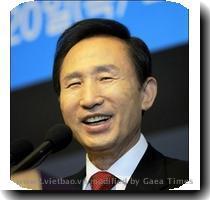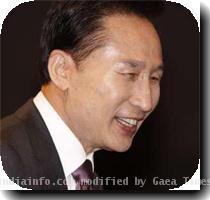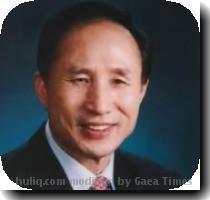North Korea declares disputed waters firing zone,’ warns South Korean ships to stay way
By Jae-soon Chang, APMonday, December 21, 2009
North Korea declares disputed waters ‘firing zone’
SEOUL, South Korea — North Korea declared waters along its disputed sea border with South Korea a “firing zone” Monday and warned ships from the South to stay away from the area, which was the scene of a deadly clash last month.
The naval command in Pyongyang accused the South of “reckless military provocations” in the area in an attempt to hold on to what it called an illegal border. It accused its neighbor of violating its waters and staging military drills in the area and vowed to protect its border by force.
North Korea does not recognize the sea border, drawn unilaterally by the United Nations at the end of the 1950-53 Korean War, and has long claimed that it should be redrawn farther south. The dispute led to deadly skirmishes in 1999, 2002 and last month.
In the November incident, ships from the two sides exchanged fire in the disputed waters, leaving one North Korean sailor dead and three others wounded, according to the South.
Pyongyang said Monday that it was designating the area a “peacetime naval firing zone of coastal and island artillery units” for its military, which apparently means that artillery shells could land in the waters at any time.
“All fishing boats and warships are required to take security measures by themselves in that zone to protect themselves,” the naval command said in a statement, carried by the country’s official Korean Central News Agency.
It said it was taking the measure to cope with a “grave situation” in the disputed waters that it blamed the South for creating.
South Korea rejected the North’s claim of border violations as groundless.
“We consider it deeply regrettable that North Korea’s naval command made unreasonable claims threatening our warships and boats that operate normally in our area,” the South’s navy said in a statement. “We are fully ready to defend the maritime demarcation line and will act sternly in case of North Korean provocations.”
Relations between the two Koreas soured badly after South Korea’s conservative President Lee Myung-bak took office last year with a pledge to get tough on the North’s nuclear ambitions, and he halted unconditional aid to the impoverished neighbor. An angry Pyongyang suspended reconciliation talks and joint projects.
But in recent months, the North has sought to reach out to Seoul in what analysts said was an attempt to win badly needed aid following U.N. sanctions for its nuclear test in May.
Ties between the sides have shown signs of warming amid Pyongyang’s conciliatory attitude, with the South last week shipping the antiviral drug Tamiflu across the border to help North Korea fight swine flu. It was Seoul’s first direct aid to the country under Lee.
The two countries are still technically at war as the Korean War ended in a truce, not a peace treaty.



